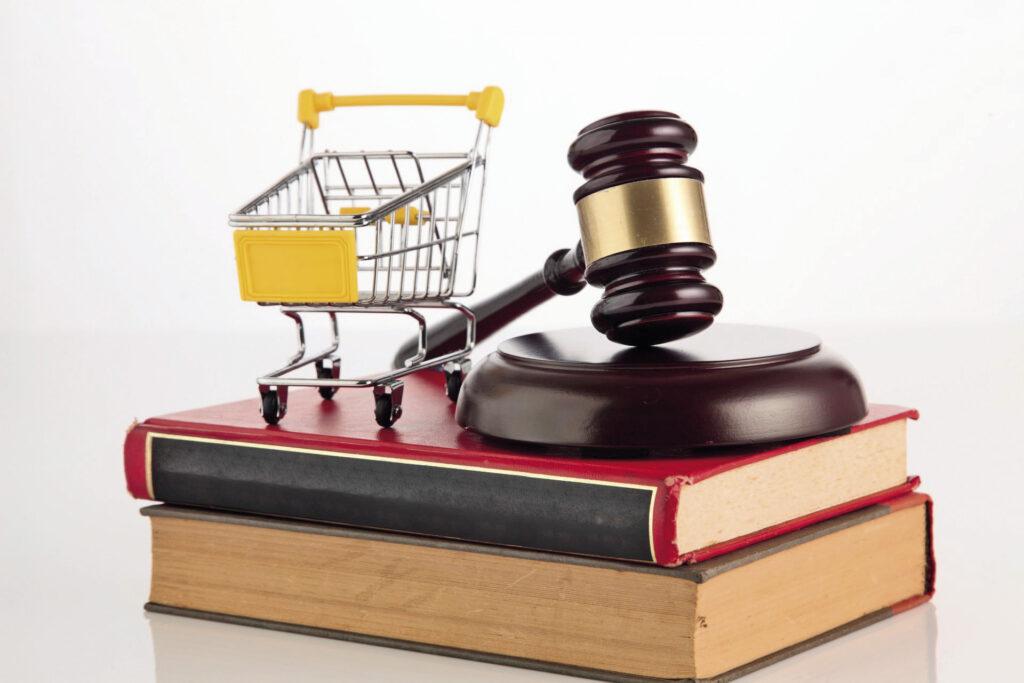Changing consumption habits, changing consumer protection rules
In 2024 the Consumer Protection Act is amended in several points, as consumers need even more protection due to the digitalisation in all areas of sales, transforming consumption habits and changing market conditions.
This article is available for reading in Trade magazin 2024/2-3
In this context, the government’s new “pro-active” consumer protection policy has made access to consumer protection a priority. The legislator aims to encourage voluntary compliance and facilitates effective action against infringements.
The two main pillars of the “reform” are the updating of the rules on conciliation bodies and dispute resolution, and increasing the consumer protection fines.

By amending the law, the legislator aims to make the existing consumer protection system work more efficiently, thereby encouraging voluntary compliance and facilitating effective action against infringements
Reforming how conciliation bodies operate

Guest writer:
Dr. Gergely Ficsor
lawyer, member
Réti, Várszegi és Társai
Law Office PwC Legal

Guest writer:
Dr. Zsófia Straubinger
lawyer, member
Réti, Várszegi és Társai
Law Office PwC Legal

Guest writer:
Dr. László Szűcs
lawyer, member
Réti, Várszegi és Társai
Law Office
PwC Legal
In Hungary the system of conciliation bodies has been in operation for almost 25 years – a unique feature in the EU. The main objective of conciliation is to encourage consumers and commercial businesses to reach a settlement in consumer disputes. If the agreement reached complies with the law, it is approved by a decision of the conciliation body. As of 1 January 2024, if the value of the claim the consumer wishes to enforce doesn’t exceed HUF 200,000, the conciliation panel may issue a binding enforceable decision even in the absence of a declaration of submission by the business. The commercial enterprise may ask the court to overrule the binding decision if it disagrees. However, in this case the burden of proof is no longer on the consumer, but on the retailer. Another positive development for consumers is the introduction of online hearings as a priority. Under the new rules, the consumer will still have the right to request a face-to-face hearing with physical presence, but in the absence of such a request, the conciliation body will – as a general rule – hold an online hearing. Let’s not forget that consumers can still only turn to a conciliation body if they have tried to settle their dispute directly with the business concerned and have been unsuccessful.

This change is expected to increase the number of consumers referring to arbitration bodies
Much bigger consumer protection fines
The level of fines that the consumer protection authority can impose changes from 1 March.
For larger businesses (those with annual net sales of more than HUF 100m, subject to the Accounting Act and not classified as SMEs), the minimum fine will increase from HUF 15,000 to HUF 1m and the maximum will be HUF 650m. From March the minimum fine for businesses below the above sales threshold will be HUF 100,000 and maximum HUF 2m.
Special rules will apply to businesses in e-commerce. If a company is found to have committed at least two infringements within a three-year period, it will face an increased fine for the second infringement (and for any repeated infringements within three years). In the case of repeated infringements by e-commerce businesses, the fine may range from HUF 2m to HUF 3bn, provided that the e-commerce undertaking meets the conditions for the higher sales revenue referred to above; as for businesses with a sales revenue below the given threshold, the fine will be between HUF 400,000 and HUF 4m. //

Regular internal audits and continuous policy review can reduce consumer protection risks
//
Related news
Chamber of Agriculture: We do not ask for Ukrainian imports
The European Commission proposes indefinite benefits to Ukraine after the…
Read more >NKFH: food safety raids during the summer season, primarily in ice cream parlors and beach buffets
In order to protect consumer safety, the National Trade and…
Read more >GVH President: The development of Hungarian language models is a matter of national sovereignty
Csaba Balázs Rigó, President of the Hungarian Competition Authority (GVH),…
Read more >Related news
GKI analysis: Why do Hungarian households live more poorly than anyone else in the EU?
Imagine that the residents of every EU country shop in…
Read more >KSH: industrial producer prices decreased by 0.7 percent in May 2025 compared to the previous month, and increased by an average of 6.9 percent compared to a year earlier
In May 2025, industrial producer prices were 6.9 percent higher…
Read more >Consumption drives the economy
According to the latest forecast by the Balance Institute, the…
Read more >






